The phonetic table
Overview
This is the heart of Mnemisis - a table of phonetic equivalents for the numbers zero through nine. The important bits to pay attention to are the Number and Phonetic Value columns.
The best results are going to be gotten from giving up some of the neurons you spent on reruns of Raymond in the Middle of Dark Water and Ollie on actually remembering these values. Once that's done, you can actually put Mnemisis to use by remembering only your key phrases - and counting on your knowledge of the translation table to turn them back into numbers.
The Memory Crutch section is a visual aid that might make the task a little easier. And to distract you so that you'll miss that important appointment. It is not meant as a substitute for real parental supervision, and is for external use only.
The table itself...
Table 1. Phoneme Conversions
| Number | Phonetic Value | Examples | Memory Crutch |
|---|---|---|---|
| 1 | t, th, d | dot, better, them, thing, ditto, adder | one downstroke
 |
| 2 | n | nine, dinner | two downstrokes
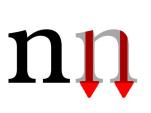 |
| 3 | m | mommy | three downstrokes
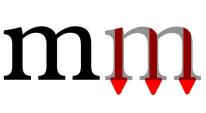 |
| 4 | r | rare, squirrel, colonel (KERN-el) | mirror the number four, add a line
 |
| 5 | l | lovely | rotate the top of the number 5
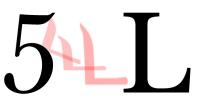 |
| 6 | j, sh, ch, soft g | jaw, journal, sheath, action, sean, anxious, special, tissue, emulsion, fascism, machine, sure, choose, witch, conscious, cello, Czech, gem, exaggerate | rotate the number 6 to a soft G[a]
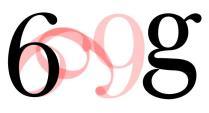 |
| 7 | k, q, hard c, hard g | kite, back, chaos, xerox, quit, acquit, cow, account, gagged, exam, raining | mirror and rotate the number 7 to make a K
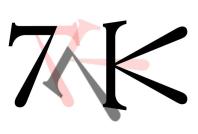 |
| 8 | f, v | food, off, phone, cough, oven, savvy, of, Stephen | the number 8 is two F's fit together
 |
| 9 | p, b | popped, bobbed | mirror the number 9[b]
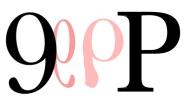 |
| 0 | z, s, soft c | zoo, buzz, xerox, scissors, sue, tossed, pretzel, circus | "Z" in "zero", "he has a 'Z' on his forehead", Z as in "he is not Jose Greco de Muertos"
 |
| Notes: a. Easier, if you know Russian, is to have it become "щ" instead, as it has both "6"sounds in it for the price of one character. You think I'm kidding. b. Number nine, number nine, etc (sound of sheep bleating) | |||
Nota Bene:
Different letters can equal the same sounds and therefore, values[1]
So, by definition, homonyms have the same phonetic value[2]
Doubled letters usually count as only one instance[3]
For-the-instance: "buffoon" would be "982" - not "9882", "rabbit" would be "491" - not "4991".
Self-consistancy[4] is more important than adherance to the system.
So, if you consistantly pronounce "schedule" like it's got a "k" in it, code it as such. Hint: "0765"
The memory crutches are what I used to help myself learn the equivalencies, might I suggest that the best association aids are going to be the ones that you make up.[5]
Intermezzo
Now might be a good time to re-scrutinize the quick start section, and see if the examples make more sense.
The next section of the manual delves into applications of Mnemisis. If what's going on is still baffling you, might I suggest looking here. Thank you.